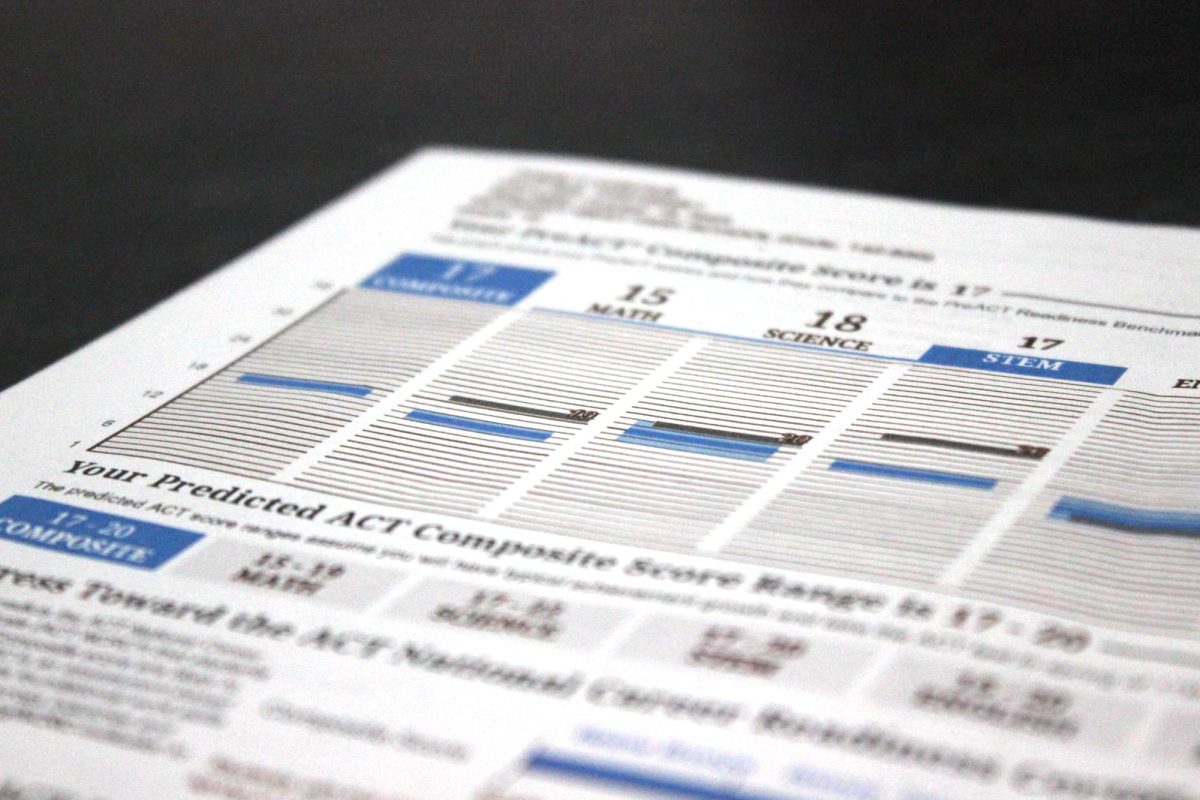There is a nervous buzz in the air as AIM teachers begin passing out PreACT scores at MCHS. After students have a chance to analyze their scores, classrooms become full of talk about the test. By the end of the period all students have had the opportunity to ask the question: “What did you get?”, leaving some students happy, but many disappointed.
On Nov. 14, students were given back their PreACT scores during AIM. For the rest of the day students walked through the school comparing what they got to one another.
One major consequence of students comparing grades is it often leads to insecurities and other mental health issues. According to the Pew Research Center, seven-in-ten teens saw anxiety and depression as a major problem, and academic pressure was the top reason with 61% of teens saying they feel this pressure.
Students overload themselves with work and classes when they feel pressure to be better than their peers. This stress isn’t healthy for teenagers to handle on their own, and it often leads to feelings of burnout, anxiety or depression, according to an article written by Mountain Heights Academy.
It also isn’t fair to compare students based on grades alone since all students learn and retain information differently. According to High School of America, 57% of students study for only one hour outside of school, and 24% study for only one to two hours. High school students have many responsibilities, like jobs or extracurriculars, that get in the way of doing schoolwork, so not all students have the time to dive deep into study materials.
On top of this, a majority of students have at least one subject that they struggle with because not all topics click with everyone. Individual courses grades aren’t always an accurate representation of a student’s intelligence, so when students compare them to each other it creates stress over a fraction of what a person actually understands.
When students focus on the academic achievements of others, it undermines their own success and puts limitations on their future growth.
“We might be saving our ego in the short term,” said Curtis Menke, College and Career Counselor, “but we’re really limiting ourselves with longer term options and opportunity.”
Menke has a point. This mindset forces students to have a harder time seeing their accomplishments, and instead makes them live in a sort of shadow. They are always trying to catch up to someone that they may not be able to, leaving them feeling worse about their own academic growth.
Many students compare grades out of seemingly harmless competition, but this tendency sets the groundwork for long-term bad habits. When students become too focused on class rank or GPA, overtime it turns friendl, 59% of teens plan on attending a four-year college, and 95% of teens said that having an enjoyable job was very or extremely important to them. The stress of competing for spots in these schools is part of what makes high school competition much more stressful than it needs to be.
A lot of the time, when students compare their grades to each other it only causes more stress. Focusing on others and their performance in anything is problematic, but it’s especially true in school. Students are supposed to get a better understanding of what their next step is after high school, and if they are constantly putting other students above themselves they won’t be able to fully explore who they are as a student, or a person.




